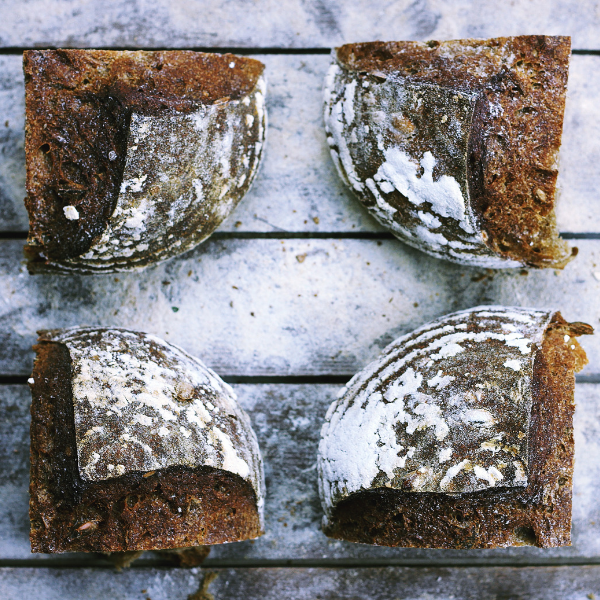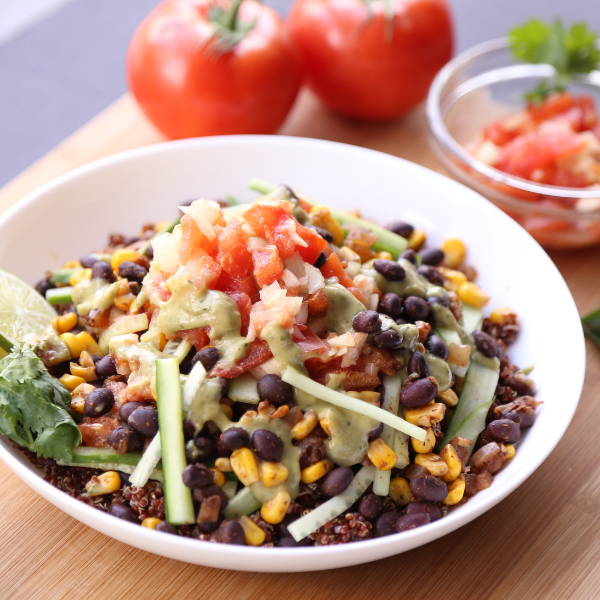Ditch sugar in 7 days!
Sugar…the delicious sweet stuff. In moderation and as part of a healthy balanced diet treating yourself to a dessert when eating out or a chocolate biscuit every now and again isn’t necessarily a problem. However, for many sugar can become addictive, leading to an over-dependence on sweet processed foods which lack nutrients. High sugar diets can also cause us to pile on the pounds (especially around the middle), and are linked to increased risk of a number of health conditions.
Breaking our over-reliance on sugar is both a mental and physical challenge. However, many find that when they do, they are rewarded by improved concentration, increased energy, weight-loss, clearer skin, better sleep, stabilised moods, balanced hormones and a better relationship with food. Whilst cutting sugar out of your diet is tough, you don’t have to be a health guru or an amazing cook to do it. Ditch the sugar with our 7-day plan!
Day 1: Identify your sugar triggers
Many of us reach for sugary foods out of habit or for emotional comfort when we are stressed. To break habits, first you need to identify what your individual triggers are. Do you start the week off with the best intentions but crumble at elevenses? Are the cakes in the office your down-fall? Or are you prone to late-night snacking? Once, identified you can then start to put in place strategies to tackle these weak moments.


Day 2: Clear out your cupboards
Studies have shown that people are less likely to crave certain foods when they are not in close proximity to them. Walking to the corner shop late at night in the pouring rain is far less appealing than just grabbing a pack of biscuits out of the cupboard. Out of sight, really can help put sugar out of mind, so clear out any sugary treats that might tempt you. Donating them to a local food bank or taking them into the office to share is a good way to avoid waste.
Day 3: Cut out processed foods
The simplest way to cut down on sugar is to eliminate processed foods from your diet and instead cook from scratch using whole food ingredients and lots of vegetables. This way you know exactly what is going into your food and you can adapt recipes by reducing the sugar content. You don’t need to be the best cook in the world to do this. Simple salads and soups are quick and easy to make. Or avoid slaving over a hot stove entirely and simply throw some ingredients in a slow cooker for a few hours, whilst you to get on with the rest of your day.


Day 4: Switch to wholegrain
Less obvious culprits are foods which get turned quickly into sugar by the body, such as refined or simple carbohydrates ie. white bread, white pasta, white rice and cous cous. Simply switching to wholegrain varieties is an easy and effective way to help control blood sugars and improve energy levels.
Day 5: Fill up on fibre
Filling up on fibre from vegetables and wholegrains is another great way to curb appetite and reduce
sugar cravings.


Day 6: Cut back on your alcohol consumption
Unfortunately, alcohol is a big enemy in the battle against sugar, especially when mixed with fizzy drinks. Cutting down on alcohol will drastically reduce your sugar intake. If you are going to drink, white spirits mixed with soda water and fresh lime is the best option, and also helps you stay well-hydrated.
Day 7: Make sensible choices and remember that balance is key!
When trying to reduce sugar, many people make the mistake of simply replacing white sugar with unrefined alternatives such as maple syrup, coconut sugar, rice syrup and honey. Whilst these do have some nutritional benefits over processed white sugar, containing certain vitamins and minerals, they have the same effect on our blood glucose and can be just as addictive, so it’s best to steer clear for a while, until cravings are under control.
Finally, when trying to reduce sugar in your diet it is important to remember that balance is key. Extreme diets and eating regimes rarely work and often going cold turkey isn’t the best strategy. Making long-term and meaningful changes to diet and lifestyle doesn’t happen over-night, and can be a gradual process. If you have that chocolate muffin when meeting a friend for coffee or succumb to the office biscuit stash, don’t beat yourself up about it or devour every sugary snack in sight in despair! The next time you eat you’ll have another opportunity to make healthier choices.

